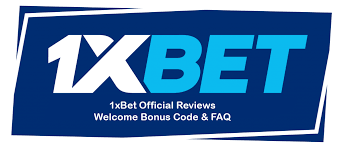
Sport betting has grown from a niche pastime into a global industry, blending statistics, psychology, and entertainment. Whether you are a casual fan placing a friendly wager or a serious player seeking long-term profit, understanding the fundamentals is essential. For those curious about the broader gambling ecosystem and entertainment options related to betting platforms, consider exploring sport betting slots 1xbet as an adjacent form of online gaming and leisure.
At its core, sport betting is about assessing probabilities and committing a stake based on those assessments. The house or bookmaker sets odds to reflect expected outcomes while ensuring a margin that yields profit over time. Your task as a bettor is to identify situations where the bookmaker’s odds misrepresent real probabilities — this is the principle of value betting. If you believe the true chance of an event is higher than implied by the offered odds, the bet has positive expected value.
Understanding odds formats is fundamental. Decimal odds (common in Europe and increasingly online) show the total return per unit staked. Fractional odds (traditional in the UK) present the profit relative to the stake. Moneyline odds (used in the US) work differently for favorites and underdogs. Converting between formats and translating odds into implied probabilities helps you compare markets and find value. For example, decimal odds of 2.50 imply a 40% probability (1 / 2.50).
Bankroll management is arguably the most important discipline in sport betting. Decide in advance how much money you will allocate to betting — your bankroll — and treat it as a long-term investment fund rather than disposable income. Use staking plans to control bet sizes and reduce risk of ruin. A common approach is flat staking, where you bet a fixed percentage of your bankroll on each selection (often 1–5%). More sophisticated methods, like the Kelly Criterion, can optimize growth given an accurate edge estimate but require caution because overestimating your edge can be costly.
Research is the backbone of informed betting. Gather data on teams, players, injuries, tactical changes, weather conditions, and historical performance. Context matters: a midweek cup tie may differ in intensity from a weekend league game; travel fatigue, fixture congestion, and lineup rotations can all influence outcomes. Statistical models and databases can help process large amounts of information, but human judgment remains valuable when interpreting qualitative factors not captured by raw numbers.
Specialization is another effective strategy. Instead of spreading your attention across many sports and markets, focus on one or two leagues or bet types where you can develop expertise. Niche markets often have less sharp pricing because fewer bettors and traders focus on them, which can create opportunities for value. For example, lower-division football leagues, certain tennis challenger events, or obscure basketball leagues may yield edges for a dedicated researcher.
Line shopping is a simple yet powerful habit: always compare odds across multiple bookmakers and betting exchanges. Small differences in odds compound over time and can significantly affect profitability. Betting exchanges also allow you to lay bets (bet against an outcome) and sometimes offer better pricing due to peer-to-peer matching. Using odds comparison tools and having accounts with several reputable operators reduces the impact of any single bookmaker’s margin.
Live or in-play betting introduces new dynamics and opportunities. Watching a match live gives you information that may not be reflected instantly in the market, especially immediately after key events like goals, red cards, or injuries. However, live markets are fast-moving and bookmakers adjust quickly, so you need clear criteria for acting. Discipline is crucial: avoid impulsive bets driven by excitement or frustration from prior results.

Psychology plays a major role in betting outcomes. Cognitive biases such as confirmation bias, recency bias, and the gambler’s fallacy can lead to poor decisions. Keep detailed records of every bet — including stakes, odds, reasoning, and results — and review them regularly to identify strengths and weaknesses in your approach. Accept that variance (short-term luck) will cause inevitable losing streaks; a robust staking plan and emotional control help you survive and learn from them.
Betting markets are influenced by public sentiment and money flow. Public favorites often attract heavy betting, which can shift lines away from value. Conversely, contrarian strategies that exploit overbet favorites can be profitable if backed by sound analysis. Be mindful of information asymmetries: professional sharps, syndicates, and automated models can move markets quickly when they spot edges. Your goal is to find situations before the smart money corrects pricing.
Risk management extends beyond individual bets. Diversify your exposure, avoid correlated bets that amplify risk, and set limits on maximum daily or weekly losses to prevent catastrophic drawdowns. Consider hedging when appropriate: in-play hedges or pre-match counter-bets can lock profits or reduce risks in volatile situations, though they often reduce expected value and must be used judiciously.
Legal and regulatory considerations are essential. Betting laws differ widely by country and region; only wager where it is legal and where operators comply with local regulations. Choose licensed bookmakers with transparent terms, strong reputation, and responsible gambling measures. Understand tax implications in your jurisdiction: in some places winnings are taxed, while in others they are not.
Responsible gambling is not optional. Set clear boundaries for time and money spent. Use features offered by bookmakers — deposit limits, self-exclusion, reality checks — to protect yourself. Seek help from professional services if gambling causes financial stress, emotional distress, or interpersonal problems. The aim is to keep betting as a controlled, entertaining activity rather than a compulsive problem.
Technology is reshaping sport betting. Data analytics, machine learning, and algorithmic trading have become commonplace among professional bettors. Accessible tools and services can assist recreational bettors with statistics, predictive models, and automation. However, technology is a tool, not a substitute for sound judgment. Over-reliance on black-box algorithms without understanding underlying assumptions can be dangerous.
Long-term success in sport betting is rare but achievable with discipline, continuous learning, and realistic expectations. Treat betting as a probabilistic enterprise: seek edges, manage risk, and measure performance methodically. Celebrate small improvements and refine your process through iterative testing and honest review.
In conclusion, sport betting combines analytical thinking with practical money management and emotional discipline. Whether you aim for modest gains or professional-level profitability, prioritize education, integrity, and responsibility. The markets are competitive and constantly evolving, so stay curious, keep learning, and respect the limits of what you can control.
